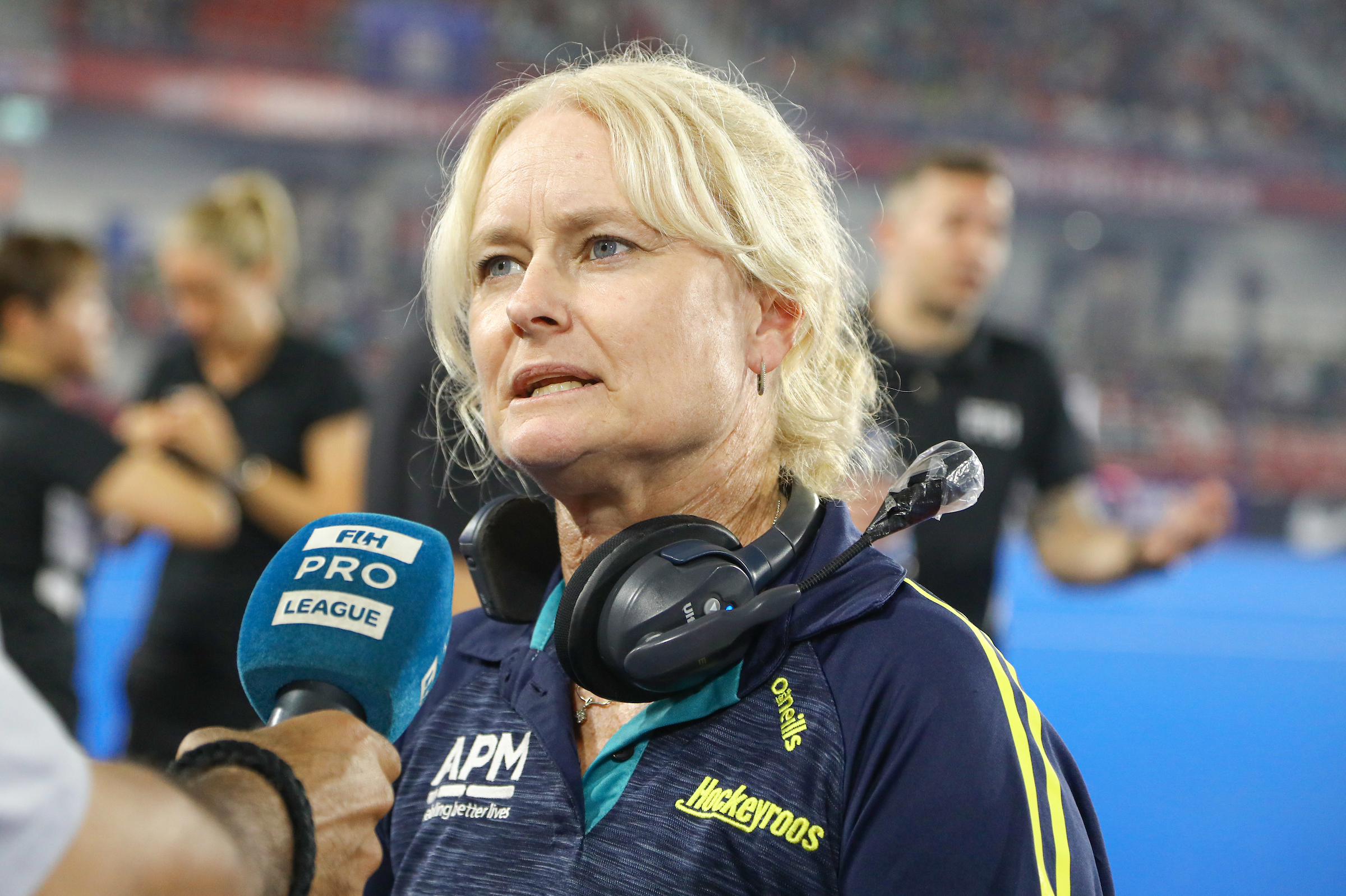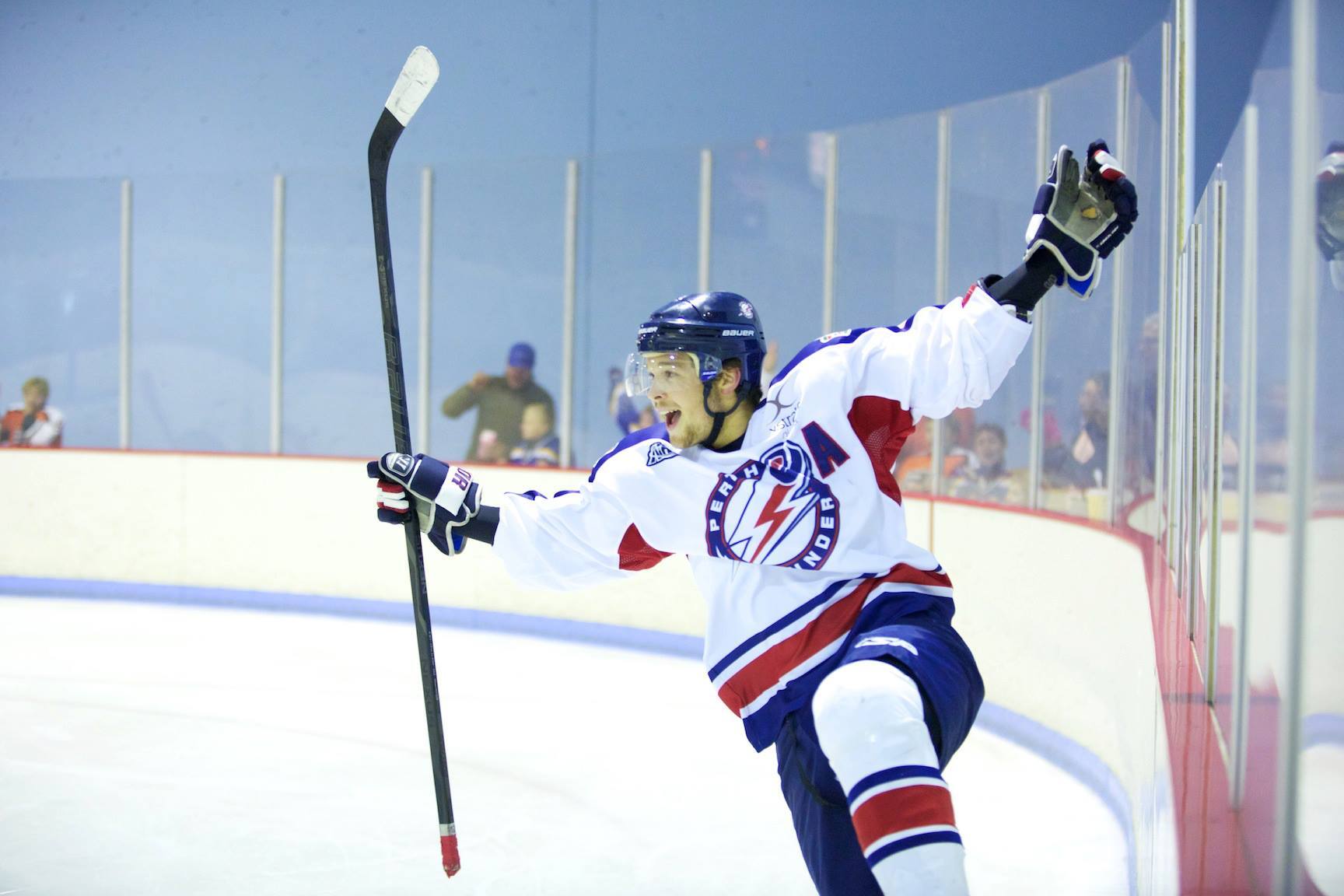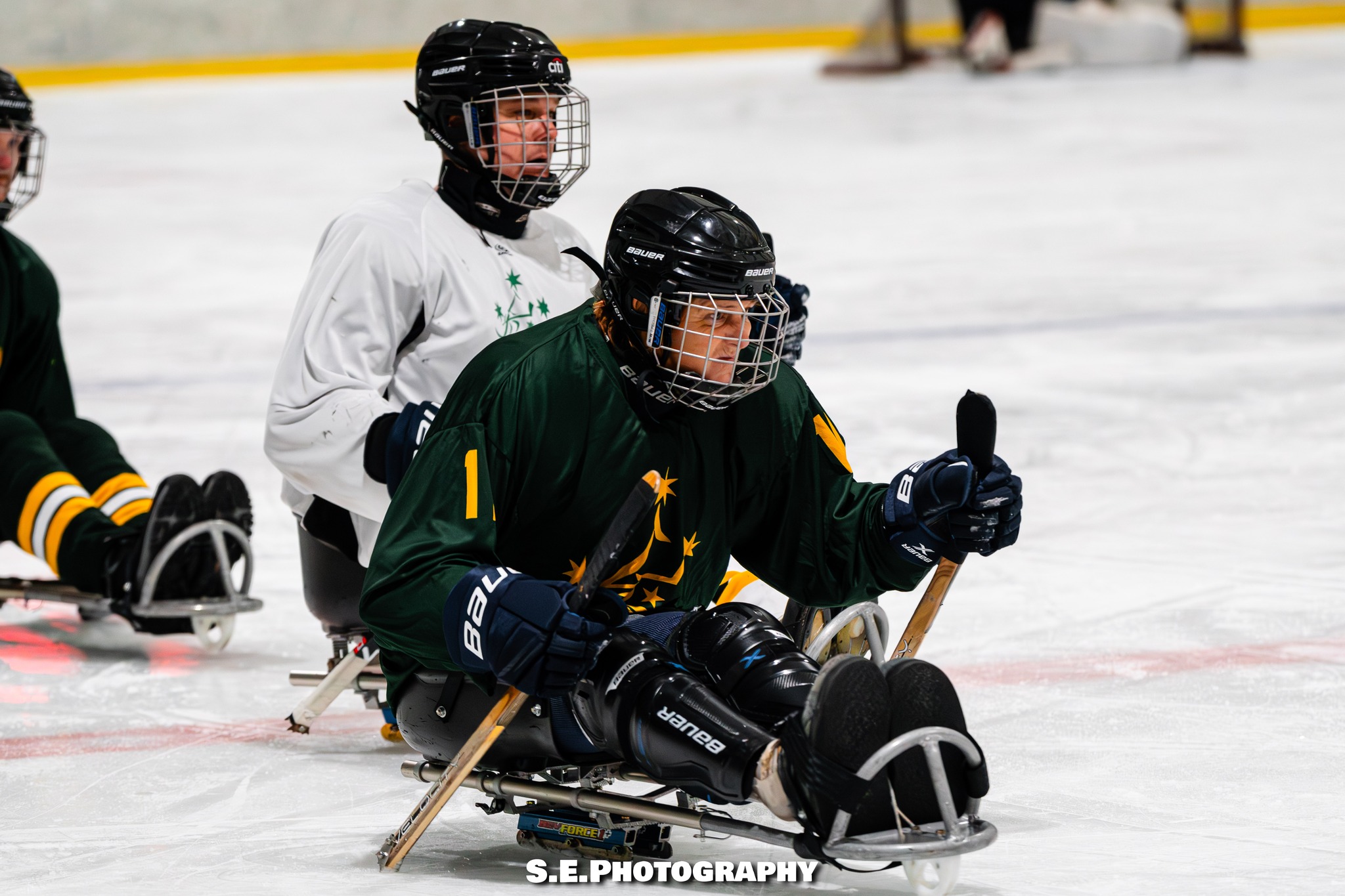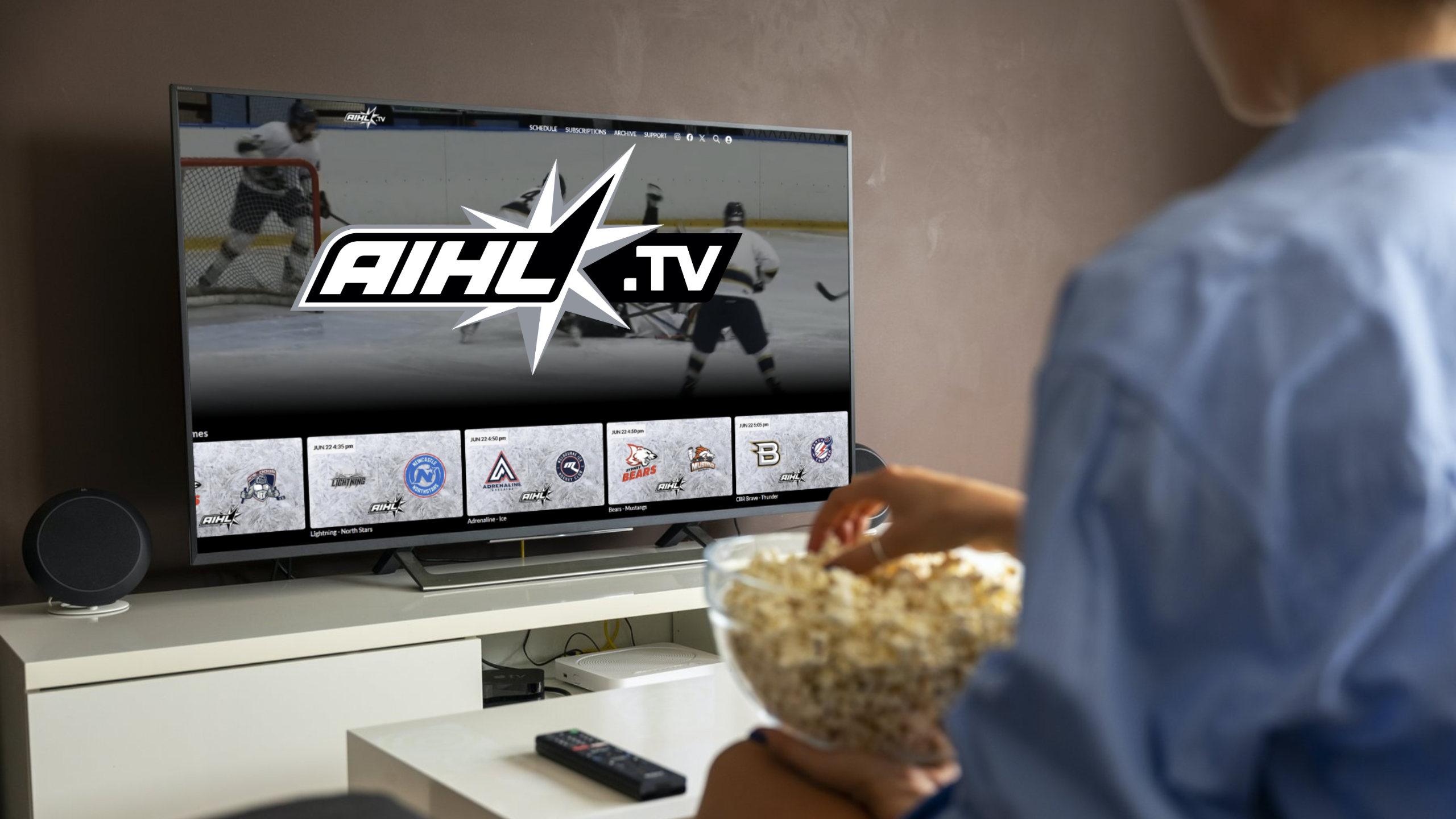On January 27, 2024, the Sydney Sirens went for a walk as a team after losing to the Perth Inferno in Western Australia. The Sirens, defending champions of the Australian Women’s Ice Hockey League, had played nine games, and lost every match.
The Sirens came across the Hockeyroos, Australia’s national women’s field hockey team, playing a training match against the WA U21 men’s team. Following the match, the players and coaching staff were able to chat with Hockeyroos Head Coach, Katrina Powell.
The next day, the Sirens won its first game of the season, and would finish the 2023-24 AWIHL campaign with four wins in its last seven appearances. Hockey Hype Australia spoke to Sirens’ Head Coach Gabe Robledo, and Hockeyroos Head Coach Katrina Powell about the meeting and its role in helping turn Sydney’s season around.

A field hockey legend
Katrina Powell’s reputation extends outside of the field hockey ecosystem. Powell was awarded the Medal of the Order of Australia (OAM) in 1997, and the Australian Sports Medal in 2000.
In her playing career, Powell won silver at the Junior World Cup (1993), gold (1998) and bronze (2002) at the Commonwealth Games, three gold (1997, 1999, 2003) and two bronze (2000, 2001) Champions Trophy medals, one World Cup gold medal (1998), and two Olympic gold medals (1996, 2000).
Almost three years ago, Powell was appointed the Hockeyroos coach, the first female coach of the side in 43 years. The Hockeyroos under Powell earned silver at the 2022 Commonwealth Games.

Cross-code collaboration
Powell is a big believer in the value of cross-code collaboration. “It’s always been a positive,” she enthused. “There’s times you think you won’t get anything out of something, those are the times you will surprise yourself.”
For instance, on one occasion, Powell went to INSEP, France’s National Institute of Sport, Expertise, and Performance, for a series of conferences. Although it was not the most appealing choice at the outset, some time with the Fencing group at INSEP proved enlightening.
“It was the thing I got the most out of [at the conference],” Powell stated. “The distance, line of approach, timing, footwork, involved in fencing all related to hockey tackling.”
In addition to tactics and on-the-field performance, Powell feels that all coaches can learn from each other, regardless of the sport. Dealing with athletes, wellbeing, and performance are universal aspects of a coaches job.
An informal meeting leads to improvement
“Some of the best conversations happen in informal settings,” Powell observed. While it’s true that correlation does not necessarily indicate causation, Sirens Head Coach Gabe Robledo feels the meeting with Powell and the Hockeyroos was influential.
“That was an incredible experience for us,” Robledo told Hockey Hype Australia of the meeting with Powell. “We talked about a few subjects and found lots of similarities and different ways to explain the concepts we have been covering.”
“I remember them [the Sydney Sirens] being in that struggle space,” Powell added, “developing a new and younger group”. Both coaches discussed the importance of being process driven, rather than being obsessed with the scoreboard, in the interests of long-term growth.
One message that Powell discussed with Robledo was communication, and the responsibilities that teammates have to each other to communicate.
“A talented, strong player can play at a new level pretty quickly,” Powell declared, “but if you don’t take that responsibility on [to communicate] for the team, it can be a problem.”
For Powell, communication is an invaluable affirmation tool. “Often communication doesn’t happen, but being able to communicate to the players around you – reaffirming that the player next to you, in front of you, is in the right spot, is vital.
This is especially true in the context of a younger team, where the veterans on the team need to communicate on the ice and on the bench so the group can grow.

Sirens finish strong
Late last year, the Sydney Sirens were announced as one of the top-25 most successful sports teams in the country over the last five years. However, this season the team is rebuilding, and icing a youthful line-up with an eye on the future.
With well over half of last year’s championship team not part of the new group, it was unsurprising that the Sirens lost their ninth straight game to start the season in Perth. However, the fortuitous meeting that same day sparked a change.
The very next day, after meeting Hockeyroos Head Coach Katrina Powell and the team, the Sirens won its first game of the season. The team battled from behind twice before holding on to a 5-4 victory.
The next weekend, Sydney travelled to Brisbane without star player Sarah Edney and were dispatched with relative ease. However, the following weekend Sydney enacted revenge on the Lightning at Macquarie Ice Rink with a regulation win, and a shootout win.

In the Sirens final weekend, after being shutout on home ice against Perth in the Saturday fixture, Sydney dug deep to collect a win in its final game of the season against the Inferno, 4-2. After starting the season with nine consecutive losses, it was the team’s fourth win in its final seven games.
Following the contest, Hockey Hype Australia talked to Robledo about the strong finish to the season, and what the impact of the informal meeting with Powell had on the rest of the season.
Robledo’s eyes lit up as he observed, “It was fantastic. All throughout the game players were talking to each other on the ice and on the bench.” As an observer, it is clear that Robledo is proud of the growth of the team to finish the season, and the input of the coaching staff.
The Sirens Head Coach is quick to direct attention to the work of Assistant Coach Dave Costa, Goaltending Coach Dane Brumm, and High Performance Coach Annelie Kvisle. But it is clear that he will not forget that chance meeting with Powell anytime soon.
“I found I was able to integrate this newfound knowledge to enhance our coaching approach to benefit the team,” Robledo added.
A collaborative future
Although collaborating with other coaches across categories and codes is nothing new, it is still a relatively untapped market in the context of ice hockey in Australia.
“Collaborating with coaches from different sports offers opportunities to exchange ideas, strategies, and insights that prove to be valuable,” Robledo continued. “Fresh perspectives on coaching techniques, challenges, and approaches can always be applied across various sports.
“Listening and learning can also spark innovation and creativity in one’s own coaching methods, which enhances overall performance and that’s what we want to do as coaches,” Robledo concluded.
Perhaps in the future, coaches, administrators, and others may find rich rewards and enrich their counterparts through similar opportunities to collaborate, such as the Sydney Sirens experienced.




